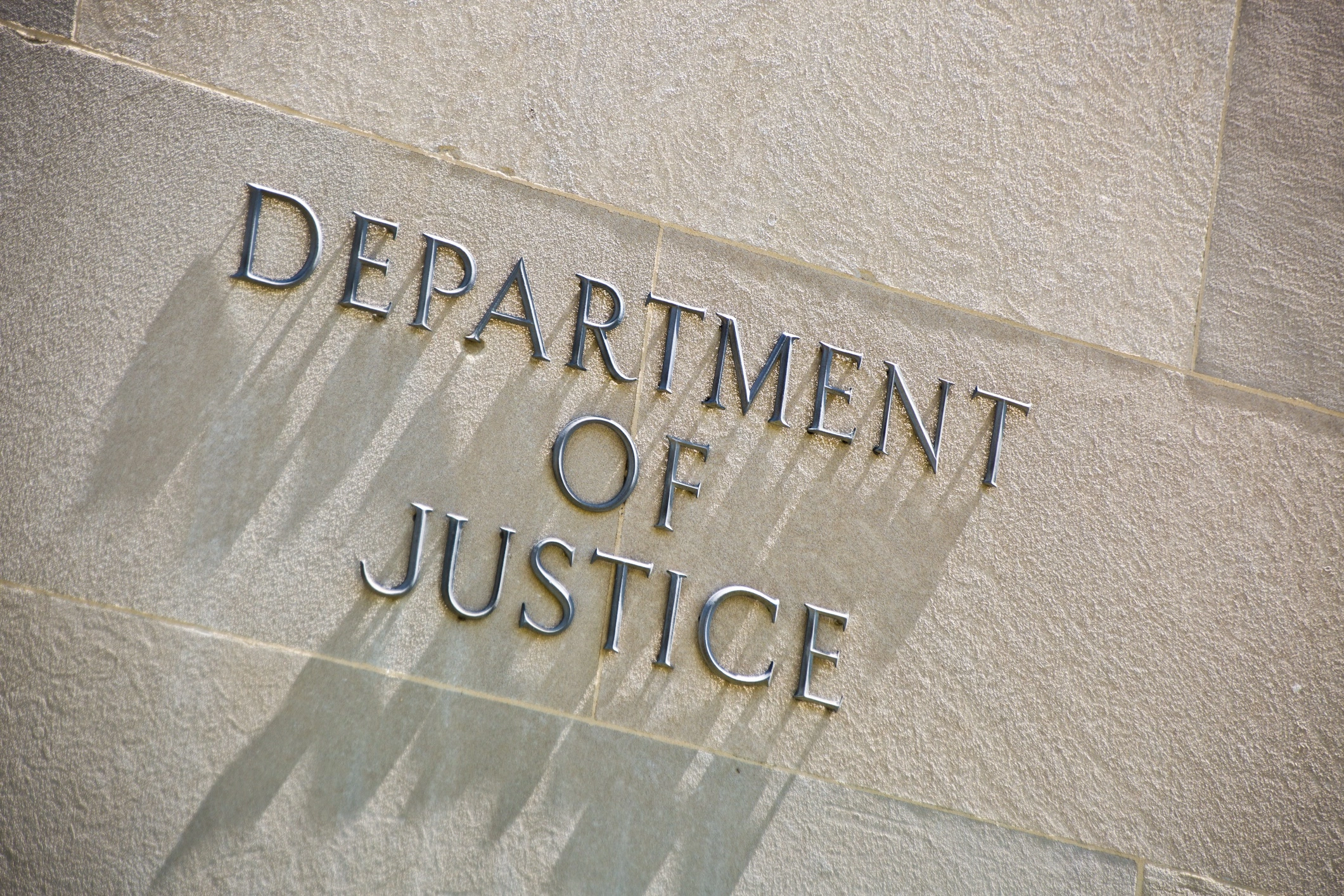
Several newly-released advisory opinions on the Foreign Agents Registration Act (“FARA”) demonstrate the Department of Justice’s (“DOJ”) exceedingly broad view of the statute’s scope. These opinions signal that organizations working with foreign entities may not be able to claim exemptions previously thought to apply to their work. This latest guidance is in line with DOJ’s efforts to prioritize enforcement of FARA.
Opinion to U.S. Nonprofit Organization
In a March 13, 2020 opinion concerning a U.S. nonprofit organization that received a grant from a foreign government agency to “serve … as a general contractor” for a project to combat deforestation, the FARA Unit determined that the nonprofit was required to register under FARA. Under its grant agreement with the foreign government, the nonprofit sought to influence corporate purchasing decisions, “met occasionally with officials of the U.S. government,” and signed agreements with various U.S. firms to carry out the project’s activities. The nonprofit argued that its interactions with U.S. government officials had “nothing to do with formulating, adopting, or changing the domestic or foreign policies of the United States.” The FARA Unit disagreed, remarking that the communications constituted “political activities” because they “advance the product-sourcing practices that are in the political and public interests of, and are the policies of,” the foreign government.
The nonprofit also asserted that its agreement with the foreign government agency did not give the agency “any ability to direct or control” it. The FARA Unit again discarded this argument, noting that the agreement “obligated” the nonprofit to “engage in activities to advance the deforestation priorities” of the foreign government.
DOJ may be indicating here that it will apply FARA expansively when a U.S. organization accepts money from a foreign source, including a foreign government. U.S. tax-exempt organizations should closely scrutinize any existing projects funded directly or indirectly by a foreign source to determine whether FARA registration might be necessary. Organizations should also begin thinking about FARA earlier in the grant-writing process so that the grant is structured to fall outside FARA’s scope or so that an expected FARA registration is noted in proposals and negotiations
Opinion to U.S. Law Firm
In another opinion, the FARA Unit endorsed an expansive interpretation of FARA’s reach and an accompanying narrow view of the “legal representation exemption” in addressing the activities of a U.S. law firm working on behalf of a foreign government client. The firm asserted that it was not required to register due to the application of the “legal representation exemption” under Section 3(g) of FARA, which provides that a person is exempt from registration if they are “qualified to practice law” and “engage in the legal representation of a disclosed foreign principal before any court of law or agency of the Government of the United States.”
The FARA Unit, however, stated that the exemption did not apply to much of the law firm’s work. The FARA Unit found, for instances, that the following activities would be FARA-registrable: (1) the provision of “legal advice and analysis on law and policy regarding matters and development that concern and affect US-[foreign country] relations, such as pending legislation, and executive decisions and policy”; (2) “attending regular meetings” at which the foreign government’s U.S. lobbyists discussed “proposed legislation and legislative strategy”; (3) sharing memoranda prepared by the law firm with the foreign government’s lobbyists and public relations firm “regarding pending legislation”; (4) “drafting, at the request of the Embassy, potential responses to media inquiries to be delivered by the Embassy about litigation in which [the firm]was counsel of record”; and (5) providing the foreign government with “written arguments against passage of [a] resolution in the House of Representatives.” DOJ appears to be indicating here that law firms can avoid FARA registration when representing a foreign government only if tight guardrails are put in place, including certain restrictions on core legal services like providing legal analysis, drafting potential media responses related to litigation, and attending meetings with a client.”
Finally, the law firm, the FARA Unit noted, would be required to “disclose, in its registration documents, all revenues and expenditures received from or spent on behalf of” the foreign government, as well as “all activities undertaken” by the firm without regard to privilege.
An Informational Resource in a New Era of Foreign Agents Registration Act Enforcement.
Search
Recent Blog Posts
- Comment Period for FARA Rulemaking Closes
- AG Bondi Issues Important FARA Directive
- DOJ (Finally) Publishes Proposed Revisions to FARA Regulations
- DOJ Publishes 14 New Advisory Opinions
- Former Aide to New York State Governor Kathy Hochul Charged with Acting as an Unregistered Foreign Agent of China
- Two Employees of Russian State-Controlled Media Outlet Indicted for Funding and Directing U.S. Company that Published Pro-Russia Propaganda
- Pierre Girgis Pleads Guilty to Misdemeanor Failure to Label Information
- DOJ Charges Former National Security Council Official
- U.S. Senator Robert Menendez Convicted of Acting as a Foreign Agent
- DOJ’s FARA Unit Releases 15 New Advisory Opinions
Bios
Archives
- March 2025
- February 2025
- December 2024
- September 2024
- August 2024
- July 2024
- June 2024
- May 2024
- January 2024
- July 2023
- December 2022
- November 2022
- October 2022
- May 2022
- April 2022
- March 2022
- January 2022
- December 2021
- October 2021
- July 2021
- March 2021
- February 2021
- December 2020
- November 2020
- September 2020
- June 2020
- May 2020
- February 2020
- October 2019
- September 2019
- August 2019
- July 2019
- June 2019
- May 2019
- April 2019
- March 2019
- February 2019
- January 2019

